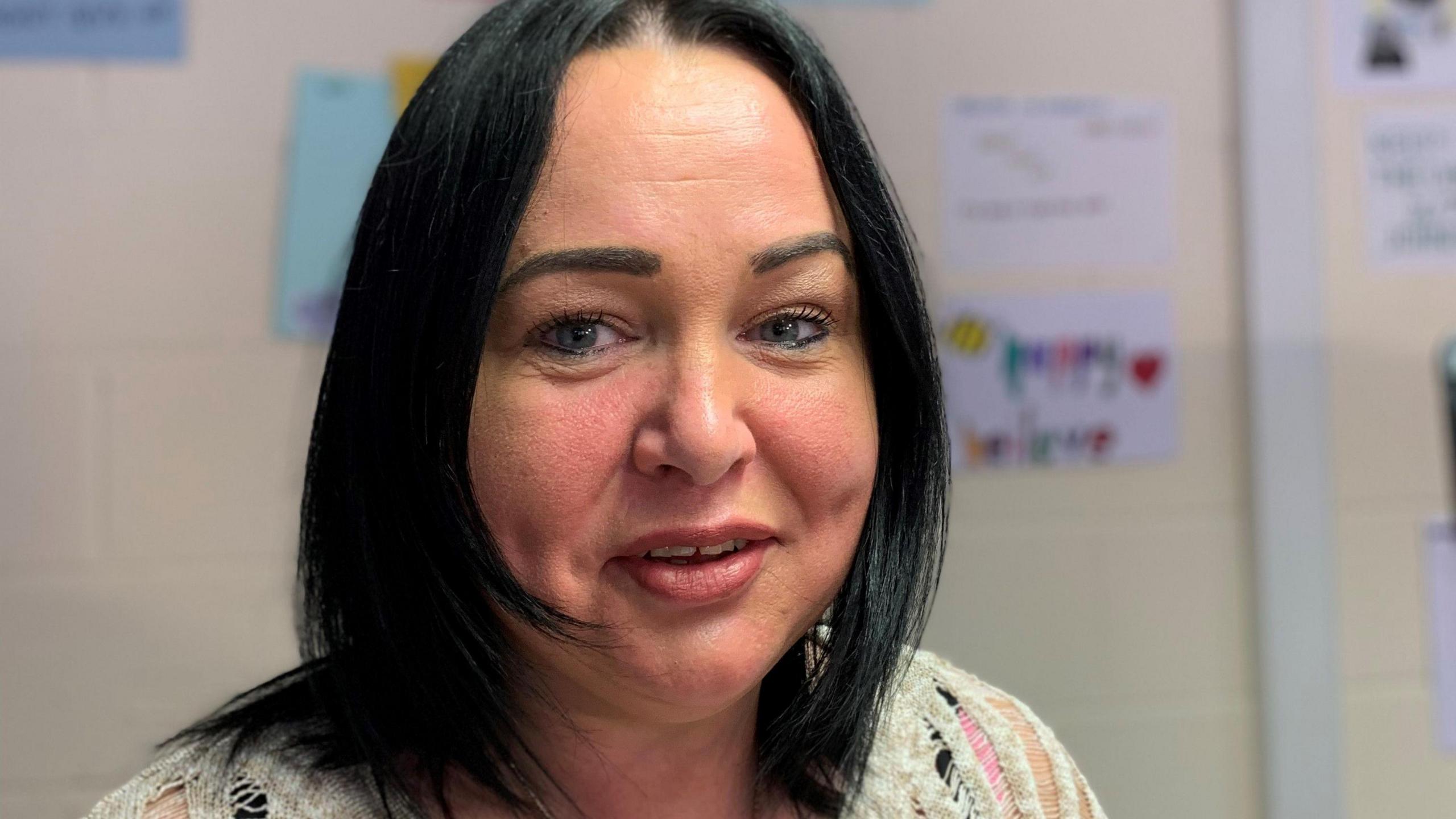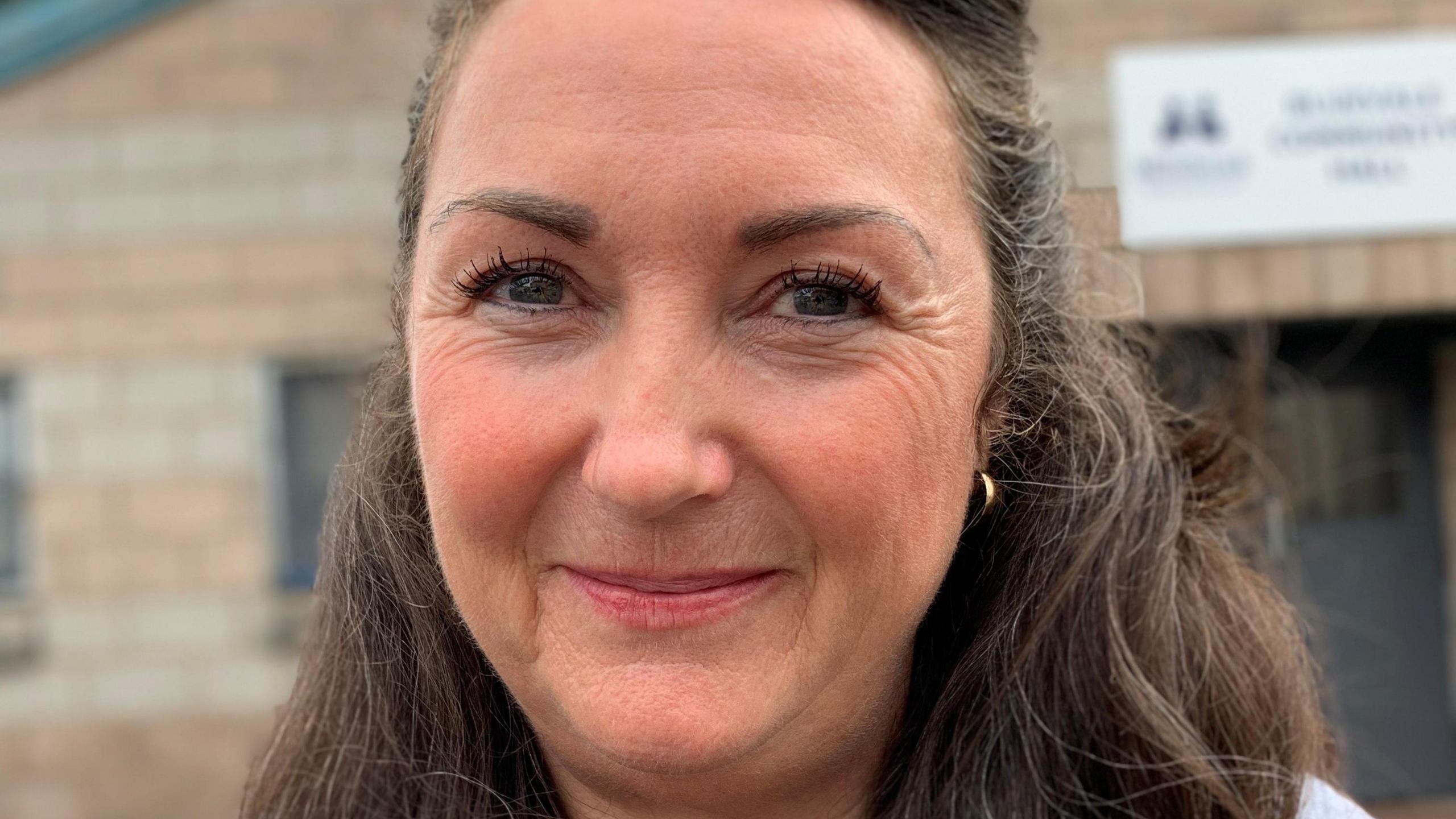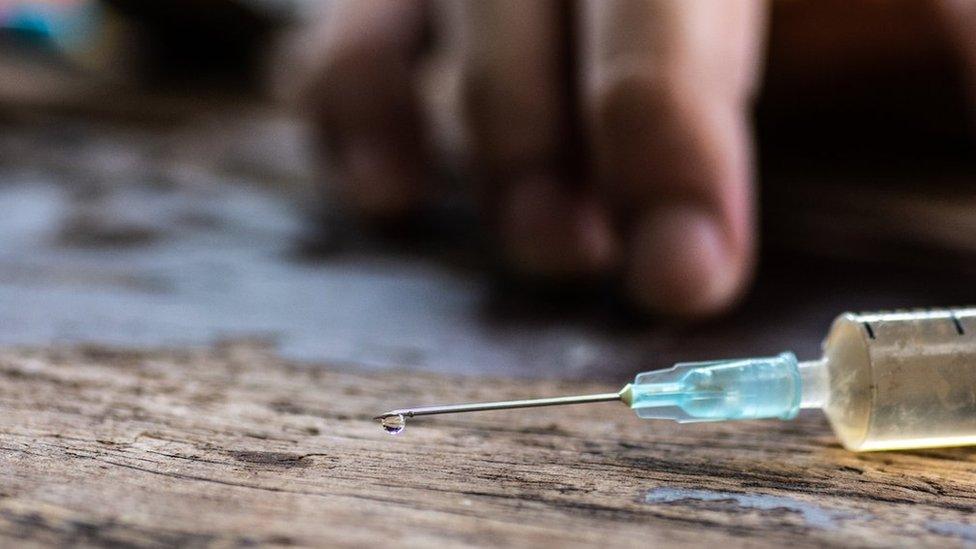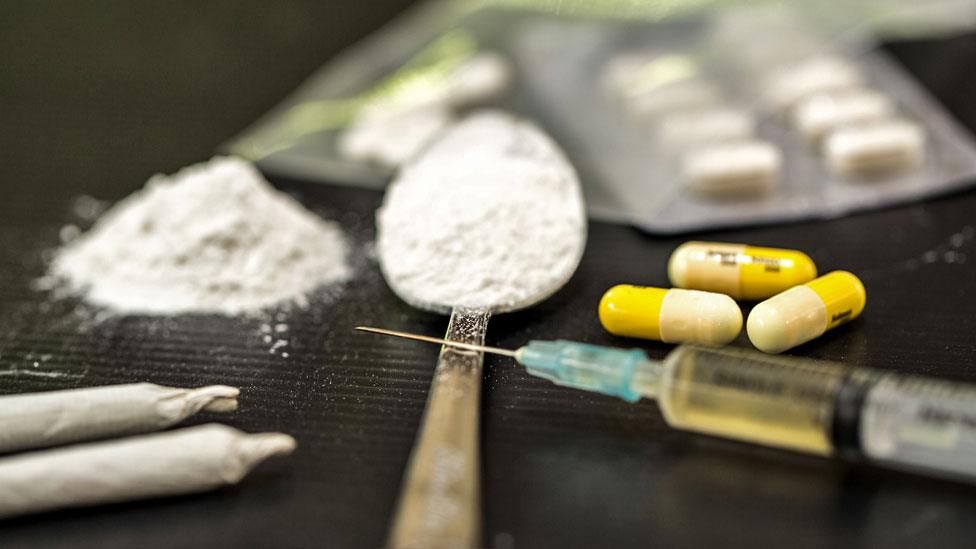I was dying but still couldn’t get a bed in rehab

Stephanie Ritchie was told she could not get a rehab place
- Published
Stephanie Ritchie says she was at the point where doctors were about to amputate her leg because of her drug use, but still could not get a rehab place.
It took a recovery charity making an appeal on her behalf to secure a place, she says.
Stephanie, who is now drug-free for the first time in 29 years, says she would not be alive today if she had not got into rehab.
Campaigners have called for everyone who needs it to have the right to access addiction recovery services.
On Wednesday, the Scottish Conservatives are publishing a bill which, if passed, would give anyone diagnosed as having a drug or alcohol addiction the right to the treatment doctors deem appropriate - within weeks.
Under the bill, services would have to explain in writing their reasons for not providing the treatment and could be held to account.
It says treatment cannot be refused on the basis of cost, history of alcohol misuse or ongoing misuse of substances.
Scottish Tory leader Douglas Ross urged First Minister John Swinney to throw the weight of the Scottish government behind the bill.
Without the backing of the government it will be more difficult for it to be passed and will need support from MSPs across the Scottish Parliament.
The Scottish government minister responsible for drug and alcohol policy, Christina McKelvie, said she would take time to consider the detail of the bill and would respond in due course.

Annemarie Ward said the bill would give people at 'death’s door' the treatment they need
The Scottish Conservatives' Right to Addiction Recovery (Scotland) Bill has been written alongside frontline drugs support workers, including the head of addiction charity FAVOR UK, Annemarie Ward.
She said the bill would give people at “death’s door” the treatment they needed and deserved.
Scotland has the highest rate of drug-related deaths in Europe.
Drug death figures fell slightly in 2022 but are rising again.
Stephanie said she almost became one of those statistics herself.
She had blood poisoning from her drug use and nowhere safe to live but was told she was not ready for a place in rehab.
“I was in a really bad way,” she told the BBC.
"They were going to amputate my leg because I had been injecting cocaine intravenously.
"I needed rehab really badly but my care managers wouldn’t give me the funding for rehab.
"I don’t know how much more ready I could have been. I was dying.”
Hooked on drugs
Stephanie says she refused to have her leg amputated and doctors managed to save it but her mental health was not good.
She says she would not have been alive today if recovery charity Sisco had not made an appeal to find her a rehab place.
Natalie Logan, from Sisco, said: “You could be at the end of your life and about to lose a limb like Stephanie and we would still have to fight to get you a place in rehab.”
It was Natalie's call for help on social media that was answered by a new residential rehab centre which offered Stephanie a free place.
Stephanie spent six months in Calderglen House residential rehabilitation in Blantyre, which is person-centred and offers to support people to reduce their methadone, or stay on it.
Natalie is supporting other people at Sisco who have been waiting more than 14 months to get a place in residential rehab.
She said far more services and resources are needed.
Now aged 40, Stephanie is drug-free for the first time since she got hooked on drugs in a children’s home in the Scottish Borders when she 11.
“Rehab worked,” she said. “I have got my family back. I have got my daughter back in my life.”
But she said too many of her friends have not been so fortunate.
Stephanie has since received an apology from NHS Greater Glasgow and Clyde about her care.
It told the BBC it could not comment on individual patients but it recognised that access times to abstinence-based residential rehabilitation could be longer than some people may expect.
The health board said it had invested in significantly increasing rehab beds as well as in pre-rehab support in the community for those who are waiting to prepare them for admission.
Rehabilitation beds
After Scottish drug death figures reached record levels in 2021, the Scottish government announced it would be spending £50m more a year on tackling the drugs crisis.
This includes funding for local alcohol and drug partnerships, as well as grassroots community organisations and improving standards for methadone prescribing.
The government also aims to provide 1,000 residential rehabilitation beds a year from 2026. It says it wants to spend more than £100m on improving access.
Scotland has already introduced Medication Assisted Treatment (MAT) Standards which aim to offer timely support and treatment but studies show there have been delays in delivering them and meeting the targets.
Patricia Tracey, from support charity Turning Point Scotland, said Scotland needs a combination of services “to keep people alive” including harm reduction and abstinence programmes.
“There is not enough of anything and there is not enough emphasis or resources,” she said.
Scottish Tory leader Douglas Ross told the BBC: “We know there are people who need this support who can’t get it, and by enshrining it in law it gives them more power themselves to get the support they need but it also places an obligation on the government, on health boards and others.
"And the government will have to come to parliament annually to outline how they have performed against the criteria set in the bill.”
Drugs Minister Christina McKelvie said the Scottish government treated problematic drug use as a health issue, not a criminal matter.
She said its National Mission aimed to get people into the treatment and recovery that is right for them while supporting them to address other social and economic needs.
Ms McKelvie said the Scottish government would continue to improve access and choice of treatment as well as expanding access to residential services and community-based support, mental health services and housing.
- Published22 August 2023

- Published23 June 2022
